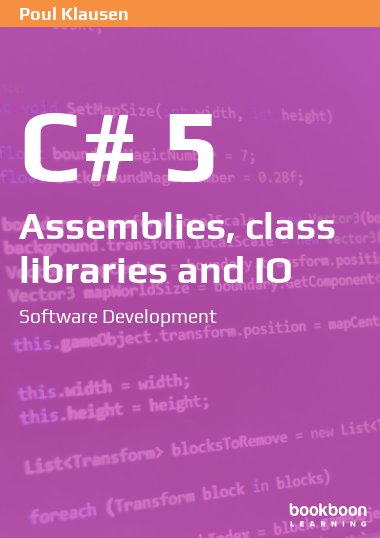The book describes the use of binary operations in C#, and another topic is assemblies and including class libraries. Both private and shared assemblies are treated. The book provides an introduction to reflection and how, at runtime, to retrieve information about types and there members. There is a chapter on IO, and finally, the book ends with an appendix on binary and hexadecimal numbers.Click here to download the source files from this book.

